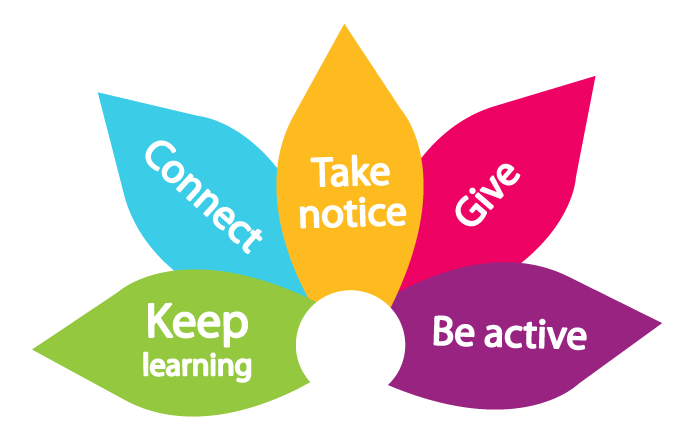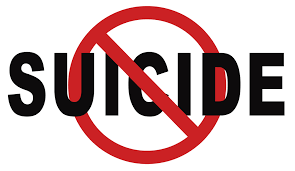Stop Suicide
“The birds of hope are everywhere, listen to them sing” –Terri Guillemets
"Talk and come to us for starting new life to give life and happiness to others" –Sant Shashi
Remove the stigma
The first thing we can all do to help prevent suicide is talk about it. No person in a suicidal state or struggling with any mental health issue should have to feel silenced or shamed. The same is true for people who are worried about a friend or family member. They should know that they can reach out and make a difference. Too often, people are afraid to bring up the subject of suicide, fearing that they’ll be wrong or “put the idea in someone’s head.” This is a big misconception. People need to talk about suicide and open the doors of communication to those suffering with suicidal thoughts. These individuals need to know that they are not alone, and that there is an entire community who is there, who can relate, and who will support them in the hardest of times.
We can get more involved in this community and break the silence by taking actions like participating in an “Out of the Darkness” walk put on by the American Foundation for Suicide Prevention or reaching out to survivors. Most importantly, we can educate ourselves on warning signs, helper tasks and resources, so we feel empowered as opposed to helpless when it comes to facing the issue of suicide. Also, removing the stigma is essential to provide help and resources to those families or friends who have lost a loved one to suicide. We need to make them feel comfortable to seek support.

Five ways to wellbeing
We all have mental health, just like we all have physical health – and there are five simple things we can build into our lives to help us stay mentally well.
ARE YOU THINKING ABOUT SUICIDE?
Get help! You are not alone. Call Lifeline 9431014325, 911, 100
Just by reading this, a part of you is looking for ways to live and to get help for problems in your life. It is not uncommon to feel this way and lots of people have suicidal thoughts and are able to work through them and stay safe. Thoughts and feelings of ending your life can be overwhelming and very frightening. It can be very difficult to know what to do and how to cope, but help is available.
- Contact Lifeline (available 24/7)
- Talk to someone you trust – you don’t have to go through this alone. Tell them how you feel – and that you are thinking of suicide. Ask them to help you keep safe.
- Get help and support to stay alive – contact a helpline, your GP, a counsellor, psychologist or psychiatrist, a hospital emergency department, minister, teacher or anyone you trust to keep you safe.
- If life is in danger – call emergency services 000
WHY DOES SOMEONE CONSIDER SUICIDE?
Life can be painful and problems can seem overwhelming at times. Some people may think about suicide but do not act upon it. For others, suicide seems like the only way out of their situation or the feelings they are experiencing. They generally feel very alone and hopeless. They believe nobody can help them or understand what they are going through.
There are many reasons why someone considers suicide:
- Relationship break-ups
- Family problems
- Sexual, physical or emotional abuse
- Drug or alcohol problems
- Mental illness, including schizophrenia, bipolar disorder and depression
- Eating disorders like Anorexia
- Major loss and grief such as a death or the suicide of a friend, family member, public figure
- School, uni or work problems
- Unemployment or being unemployed for a long time
- Feeling like they don't belong anywhere
- Financial or legal problems
- Any problem that they can't see a solution for
Almost everyone who takes their own life gives some clue or warning. Never ignore suicide threats. Take people’s suicidal thoughts and feelings very seriously and help them find effective help.
POSSIBLE SIGNS SOMEONE MIGHT BE THINKING ABOUT SUICIDE
Most suicidal individuals give warning signs or signals of their intentions. The best way to prevent suicide is to recognise these warning signs and respond to them.
Situations:
- Recent loss (a loved one, job, relationship or pet)
- Major disappointment (missed promotion at work, failed exams)
- Change in circumstances (divorce, retirement, separation, children leaving home)
- Mental disorder/illness
- Physical illness/injury
- Suicide of someone they know or recognise
- Financial/Legal problems
- Hopelessness
- Feeling trapped
- Depression
- Irritable/moody, angry
- Worthlessness
- No sense of purpose/reason for living
- Previous suicide attempts
- Talking or writing about suicide/death, even if it seems to be a joke
- Seeking access to something they can kill themselves with
- Being moody, withdrawn or sad
- Saying goodbye/giving away possessions
- Losing interest in things they previously enjoyed
- Taking less care of their appearance
- Anxiety or agitation, including difficulty concentrating or sleeping
- Engaging in self-destructive or risky behaviour
- Increased use of alcohol or drugs
- Withdrawal from other people
- Sometimes a positive mood after a period of being down may indicate the person has made up their mind to take their own life, and feels relief that the decision has been made
WHAT YOU CAN DO TO PREVENT SUICIDE
- 1. Reach Out - Ask them directly if they are thinking about suicide. It needs to be a direct question that can’t be misinterpreted. "Are you thinking about suicide?" Most people with thoughts of suicide want to talk about it. They want to live – but desperately need someone to hear their pain and offer them help to keep safe. Don’t be afraid to ask them if they are thinking about suicide. This shows you care and they’re not alone.
- 2. Listen to them - Allow them to express their feelings. Let them do most of the talking. They will often feel a great sense of relief someone wants to talk to them about their darkest thoughts.
- 3. Check their safety - If you are really worried don’t leave them alone. Remove any means of suicide including weapons, medications, drugs, alcohol, even access to a car. Get help by calling Lifeline 13 11 14, or emergency services on 000. You can also take them to the local hospital emergency department.
- 4. Decide what to do and take action - Talk about steps you can take together to keep them safe. Don’t agree to keep it a secret, you shouldn’t be the only one supporting this person. You may need help from someone else to persuade them to get help. You can also help by finding out information on what resources and services are available for a person who is considering suicide.
- 5. Ask for a promise - Thoughts of suicide may return, so ask them to promise to reach out and tell someone. Asking them to promise makes it more likely they will tell someone.
- 6. Get help - There are lots of services and people that can help and provide assistance.
- GP (doctor)
- Counsellor, psychologist, social worker
- School Counsellor
- Emergency Services 000
- Community Health Centres
- Crisis support services like Lifeline, Kids helpline
- Seek support from family and friends, youth group leader, sports coach, priest, minister or religious leader etc.
In some situations they may refuse help and you can’t force them to get help. You need to ensure the appropriate people are aware of the situation. Don’t shoulder this responsibility yourself.
SUICIDE PREVENTION TRAINING
Living Works aims to create suicide safer communities by providing training to increase suicide awareness and prevent suicide. The training is available to any individual, organisation or community group to:
- Increase their awareness of suicide and see prevention opportunities they may otherwise miss;
- Become more alert to clues and communications that someone may be thinking of suicide;
- Ask about suicide and respond in ways that show understanding and assess risk;
- Work with persons at risk to increase their safety;
- Facilitate links with further help from family, friends and professional helpers as needed.
SBI COLONY 2/26, , KHAJPURA, PATNA~ 800014.
Fax : 0612-2598221(PATNA) e-mail: futuresalert@gmail.com. Mobile: 9431014325, 9693009996 website: www.futuresalert.org
